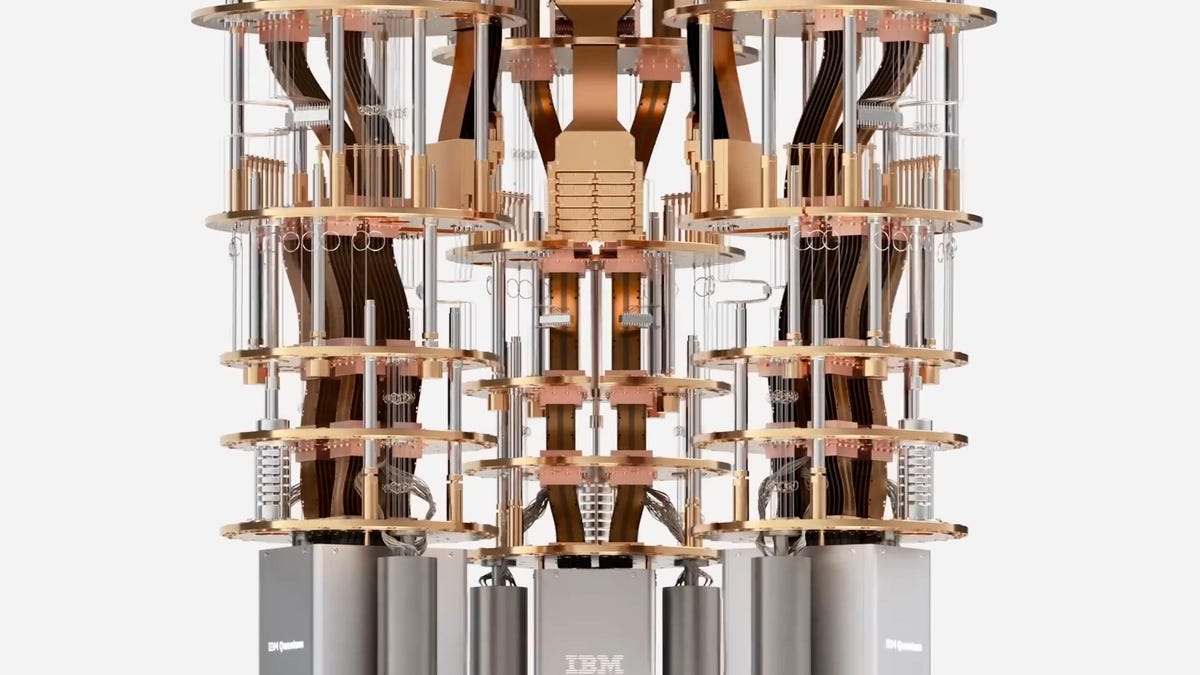Cutting-Edge Tech Trends to Watch in 2024
We run through the emerging technologies that the CNET video team will be monitoring in the year ahead.

IBM recently revealed its Quantum System Two.
From quantum computers to brain implants, a lot of companies are pushing forward in areas that have previously been the stuff of science fiction. Here are three future tech trends that CNET's video team will be keeping an eye on in 2024 (you can watch the embedded video for a closer look).
With computing at the heart of so much tech, we're kicking off with something that could revolutionize the very act of computing itself: quantum computers.
In November, IBM unveiled its Quantum System Two. At 22 feet wide and 12 feet tall, these modular computing units can be linked together to amplify their power.
When quantum computing technology like this becomes mature, extremely complicated problems that are beyond modern computers' ability to crack -- like those at the forefront of medicine, ecology, economics and more -- could finally be made solvable.
Google's Quantum hardware.
That's why the race is on between players like IBM, Google, Microsoft and Honeywell, as well as computing heavyweights in China, to create a viable quantum system.
The road to quantum computers is long and full of challenges, but with the transformative potential of these machines, we'll be monitoring all the big players in 2024.
Another trend to watch is the diverse array of new electric vehicles covering land, air and sea. We've seen the development of personal eVTOLs (electric vertical takeoff and landing aircraft) like the Jetson One; electric trucks like those developed by Tesla and Einride; electric boats like the Arc One; and electric scooters like the Honda Motocompacto.
The Jetson One is a personal flying machine.
In 2024 I'll be looking forward to (hopefully) test-driving the Aptera solar car, which I got to ride in last year; Zapata's recently announced Air Scooter; and the new boat in development from Arc.
Last but certainly not least, we're going to be watching brain-computer interfaces. The CNET video team visited Synchron headquarters this year to get a demo of the company's stentrode, a device that can be inserted via catheter, bypassing the need for open brain surgery.
Synchron has implanted the stentrode in several patients, who've employed the device to navigate their phones, computers and beyond using only their thoughts. The stentrode is implanted in a blood vessel near the brain's motor cortex, where it detects the user's intent to move and transmits it wirelessly to take the desired action.
The Synchron Stentrode sits over the motor cortex, as seen in this 3D-printed model of a patient's brain.
Elon Musk's Neuralink hasn't shied away from open brain surgery, instead developing surgical robots to install its devices. Neuralink announced open recruitment for its clinical trials in September.
Blackrock Neurotech, another leading company in this area, is preparing its MoveAgain system for a commercial launch as a medical device. The company also announced a product it calls Neuralace, an ultrathin, flexible electrode that it says could capture much more data than current technology can.
To see these technologies in action, check out the video in this article.

